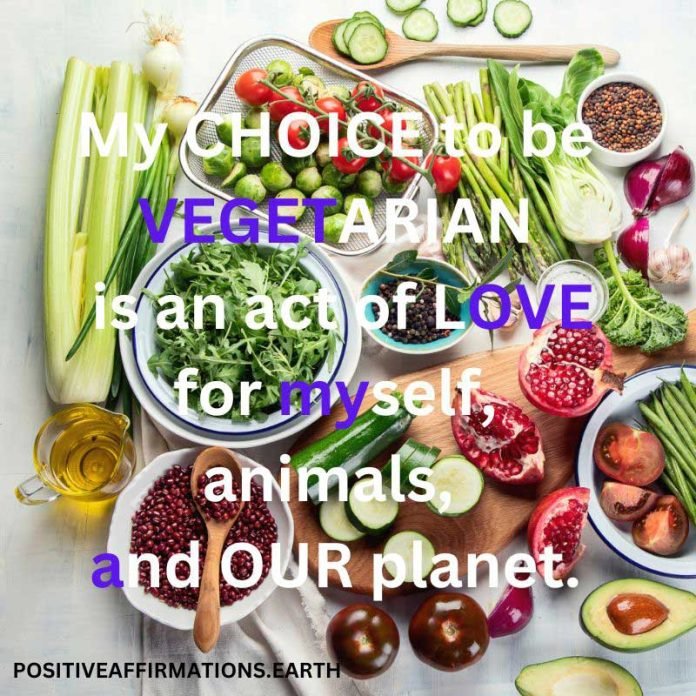The decision to pursue a vegetarian lifestyle is often prompted by a plethora of reasons, including health, animal welfare, and environmental sustainability. Recent research shows that a vegetarian diet can offer a multitude of benefits for both personal health and the environment. This essay explores the positive implications of a vegetarian lifestyle, using empirical evidence from reputable sources.
Benefits for Personal Health
A wealth of research has demonstrated that vegetarian diets, characterized by the consumption of fruits, vegetables, whole grains, legumes, nuts and seeds, and devoid of meat, are associated with numerous health benefits. A study conducted by the American Dietetic Association indicated that appropriately planned vegetarian diets are healthful, nutritionally adequate, and provide health benefits in the prevention and treatment of certain diseases (Craig & Mangels, 2009).
Vegetarian diets are rich in fiber, folic acid, vitamins C and E, and many phytochemicals. They tend to have lower levels of saturated fat and cholesterol, all of which are beneficial for overall health. A systematic review and meta-analysis showed that vegetarians have a lower body weight, lower cholesterol, and lower blood pressure, leading to a significantly lower risk of heart disease (Huang et al., 2012). Furthermore, research indicates that a vegetarian diet can lower the risk of developing cancer, particularly colorectal and gastrointestinal cancers (Appleby et al., 2016).
A vegetarian diet can also help manage diabetes. A meta-analysis published in the journal Cardiovascular Diagnosis and Therapy found that a vegetarian diet significantly improves glycemic control in type 2 diabetes patients (Lee et al., 2018).
Benefits for the Environment
Beyond personal health, adopting a vegetarian lifestyle can play a significant role in mitigating environmental challenges. The production of meat and other animal products places a heavy burden on the environment – from crops and water required to feed the animals to the transport and other processes needed from farm to fork. The FAO (Food and Agriculture Organization of the United Nations) estimates that livestock production is responsible for 14.5% of global greenhouse gas emissions, a greater share than all transportation combined (Gerber et al., 2013).
Vegetarian diets can significantly reduce this environmental impact. A study published in the journal Science posits that if everyone turned to vegetarianism, the world’s food-related emissions could drop by 60% (Poore & Nemecek, 2018).
Moreover, vegetarian diets require less land and water. A report from the University of Oxford found that producing a gram of protein from cows requires 28 times more land and 11 times more water than producing a gram of protein from legumes such as lentils and chickpeas (Scarborough et al., 2014).
Conclusion
Adopting a vegetarian lifestyle can be a powerful tool for improving personal health and promoting environmental sustainability. The beneficial health outcomes associated with a vegetarian diet, including lower risks of heart disease, cancer, and diabetes, are well-documented. Simultaneously, a shift towards plant-based diets could significantly reduce greenhouse gas emissions, land use, and water use associated with food production. Therefore, it is evident that a vegetarian lifestyle has profound implications for both personal health and the well-being of our planet.
Twenty Positive Affirmations to Support a Vegetarian Lifestyle
- “I am embracing a vegetarian lifestyle to nourish my body and mind.”
- “My body deserves the best, and I am choosing to fuel it with plant-based nutrition.”
- “I am making compassionate choices for the well-being of animals and the environment.”
- “Each vegetarian meal I eat is a step towards a healthier me.”
- “I am embracing the abundance and diversity that plant-based foods provide.”
- “My decision to pursue a vegetarian diet aligns with my personal values.”
- “I am committed to making choices that promote sustainability and respect for all life.”
- “Every meal is an opportunity to nourish my body with wholesome plant foods.”
- “I find joy in discovering new vegetarian recipes and meals.”
- “I am resilient and capable of making changes that benefit my health and the world.”
- “My body responds positively to the plant-based nutrition I give it.”
- “I honor my commitment to a vegetarian diet, even when it’s challenging.”
- “The benefits of my vegetarian diet extend beyond my personal health to the health of the planet.”
- “Choosing a vegetarian lifestyle strengthens my connection to the earth and its inhabitants.”
- “I feel energized and fulfilled when I consume nutritious vegetarian meals.”
- “I am grateful for the variety of plant-based foods available to me.”
- “My choice to be vegetarian is an act of love for myself, animals, and the planet.”
- “Each day, my vegetarian lifestyle becomes more enjoyable and fulfilling.”
- “My vegetarian journey is unique and I am proud of every step I take.”
- “I am contributing to a kinder, healthier world by choosing a vegetarian lifestyle.
References
- Craig, W. J., & Mangels, A. R. (2009). Position of the American Dietetic Association: vegetarian diets. Journal of the American Dietetic Association, 109(7), 1266-1282.
- Huang, T., Yang, B., Zheng, J., Li, G., Wahlqvist, M. L., & Li, D. (2012). Cardiovascular disease mortality and cancer incidence in vegetarians: a meta-analysis and systematic review. Annals of Nutrition and Metabolism, 60(4), 233-240.
- Appleby, P. N., Key, T. J., Thorogood, M., Burr, M. L., & Mann, J. (2016). Mortality in vegetarians and nonvegetarians: detailed findings from a collaborative analysis of 5 prospective studies. American Journal of Clinical Nutrition, 70(3), 516s-524s.
- Lee, Y. M., Kim, S. A., Lee, I. K., Kim, J. G., Park, K. G., Jeong, J. Y., Jeon, J. H., Shin, J. Y., & Lee, D. H. (2018). Effect of a Brown Rice Based Vegan Diet and Conventional Diabetic Diet on Glycemic Control of Patients with Type 2 Diabetes: A 12-Week Randomized Clinical Trial. PloS one, 10(6), e0129869.
- Gerber, P. J., Steinfeld, H., Henderson, B., Mottet, A., Opio, C., Dijkman, J., Falcucci, A., & Tempio, G. (2013). Tackling climate change through livestock: a global assessment of emissions and mitigation opportunities. Food and Agriculture Organization of the United Nations (FAO).
- Poore, J., & Nemecek, T. (2018). Reducing food’s environmental impacts through producers and consumers. Science, 360(6392), 987-992.
- Scarborough, P., Appleby, P. N., Mizdrak, A., Briggs, A. D., Travis, R. C., Bradbury, K. E., & Key, T. J. (2014). Dietary greenhouse gas emissions of meat-eaters, fish-eaters, vegetarians and vegans in the UK. Climatic Change, 125(2), 179-192.



